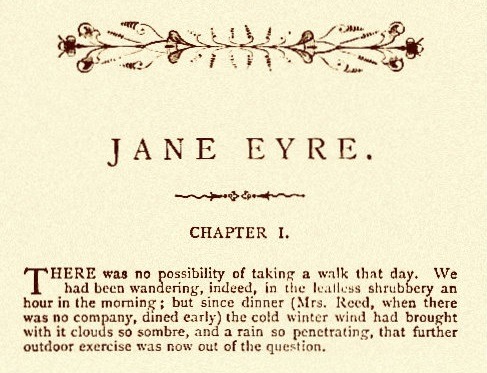There is something irrefutably romantic about older English, a charm that extends to even the harshest phrase. Titled as an autobiography, the dark toned fore chapters of Jane Eyre certainly become more digestible with a charming dialect. Relating to many - social outcasts, black sheep, ugly ducklings and the like - Jane's story begins as a ten year old orphan. With scenes all to familiar to some, she endures - not quietly! - physical, verbal and emotional abuse at the hands of relatives, and the school benefactor of Lowood, the charity school she is gladly carted away to from her miserable existence at Gateshead. Discovering for the first time acceptance, friendship and love from a doomed girl Helen and Miss Temple, Jane would spend 8 years of her life at Lowood as both pupil and teacher.
Off to Thornfield as a governess and to meet Mr Edward Rochester who later after tribulations (an insane wife) ; trials (Mr Rochester losing sight and a right hand in an attempt to save the wife from her suicide after she sets Thornfield ablaze) ; a proposal from an austere clergyman and coming into an inheritance and family, Jane marries Edward and would devote her life to taking care of him.
Bronte's depictions of the unshakable love between Jane and Edward inspires the type of writing that today would be used as a love quote. The closing chapter ethereally explains:
"No woman was ever nearer to her mate than I am: ever more absolutely bone of his bone and flesh of his flesh. I know no weariness of my Edward's society: he knows none of mine, any more than
we each do of the pulsation of the heart that beats in our separate bosoms; consequently, we are ever together"


No comments:
Post a Comment